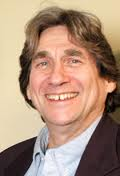EDF seeks to end its U.S. nuclear misadventure
 NRC file photo of Calvert Cliffs nuclear power plant on the shoreline of the Chesapeake Bay in Lusby, MDAs reported by the Baltimore Sun, Exelon/Constellation Nuclear will pay Electricite de France (EDF) a $400 million "special dividend" payment, in exchange for severing partnerships at three U.S. nuclear power plants, totaling five reactors, including Calvert Cliffs Units 1 & 2 on the Chesapeake Bay in Lusby, Maryland (photo, left), and the Ginna and Nine Mile Point Unit 1 & 2 nuclear power plants on the Lake Ontario shore of Upstate, New York. EDF then has the option to sell its 49.99% stake in the nuclear power plants to Exelon between 2016-2022.
NRC file photo of Calvert Cliffs nuclear power plant on the shoreline of the Chesapeake Bay in Lusby, MDAs reported by the Baltimore Sun, Exelon/Constellation Nuclear will pay Electricite de France (EDF) a $400 million "special dividend" payment, in exchange for severing partnerships at three U.S. nuclear power plants, totaling five reactors, including Calvert Cliffs Units 1 & 2 on the Chesapeake Bay in Lusby, Maryland (photo, left), and the Ginna and Nine Mile Point Unit 1 & 2 nuclear power plants on the Lake Ontario shore of Upstate, New York. EDF then has the option to sell its 49.99% stake in the nuclear power plants to Exelon between 2016-2022.
When Constellation abandoned the project, not wanting to risk its own skin in the game in exchange for a $7.5 billion federal nuclear loan guarantee offered by the Obama administration, EDF was left holding the bag as majority owner of the proposed new reactor, Calvert Cliffs Unit 3. But foreign ownership is illegal under the Atomic Energy Act, and no other American partner stepped up. The proposed new reactor was to have been a French Areva EPR (1,600 Megawatt-electric Evolutionary Power Reactor). Numerous additional proposed new EPRs have been indefinitely postponed or outright canceled across the U.S. and Canada.
As reported in the article, 'EDF Chief Financial Officer Thomas Piquemal said Tuesday that the deal represents what he hopes is "the last chapter of our U.S. adventure with Constellation," Bloomberg reported.
The Baltimore Business Journal also reported on this story.
As reported by Power Engineering International, EDF's CEO, Henri Proglio, speaking at a news conference in Paris, stated: "The circumstances for the development of nuclear in the US are not favorable at the moment. We are a major player in nuclear, but we are not obsessed by nuclear. Our development in the US will focus on renewable energy – that will be our vector of growth in the US.” (emphasis added)





 July 30, 2013
July 30, 2013



